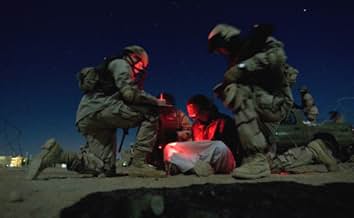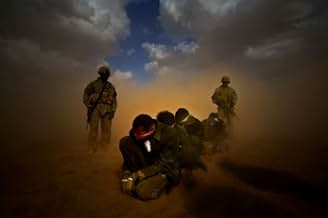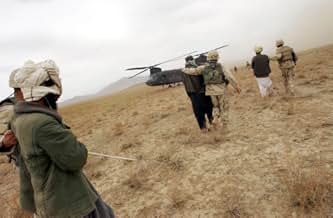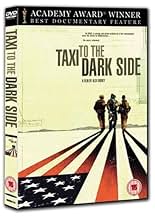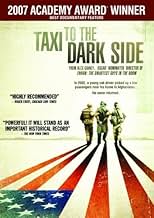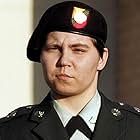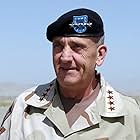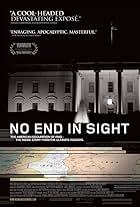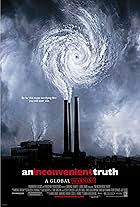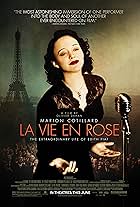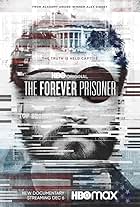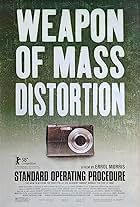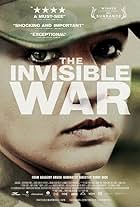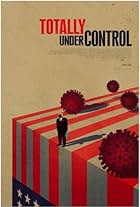Alex Gibney exposes the haunting details of the USA's torture and interrogation practices during the War in Afghanistan.Alex Gibney exposes the haunting details of the USA's torture and interrogation practices during the War in Afghanistan.Alex Gibney exposes the haunting details of the USA's torture and interrogation practices during the War in Afghanistan.
- Won 1 Oscar
- 11 wins & 5 nominations total
Alex Gibney
- Narrator
- (voice)
Moazzam Begg
- Self - Torture Victim
- (as Moazzam Beg)
George W. Bush
- Self
- (archive footage)
Jack Cafferty
- Self
- (archive footage)
Dick Cheney
- Self
- (archive footage)
Lynndie England
- Self
- (archive footage)
Tommy Franks
- Self - General
- (archive footage)
- Director
- Writer
- All cast & crew
- Production, box office & more at IMDbPro
Storyline
Did you know
- Quotes
Damien Corsetti - Military Interrogator: You put people into a crazy situation, people will do crazy things.
- SoundtracksIn My Little Corner of the World
Words by Bob Hilliard Music by Lee Pockriss
Published by Better Half Music (Division of Bourne Co.)
and Emily Music Corporation
Performed by Yo La Tengo
Courtesy of Matador Records
Featured review
This film is a worthy attempt to bring what has become a familiar subject throughout the Bush years without necessarily giving the other side an opportunity to state their case. While I personally support what the film is saying about questionable, even criminal policies of the Bush Administration's view on "interrogation" as a betrayal of all this country holds dear, the film leaves itself open to attack which is unfortunate. Tidbits are cherry picked from interviews and Congressional testimony, and while it's understandable that major players didn't want to sit down and give an interview, it's glaring that they aren't given an chance to explain why they've said what they said. I'll acknowledge the filmmaker probably has it right, but nevertheless, it's an unfair tactic.
The chief first hand accounts of information are from U.S. Military personnel who have been convicted of crimes (with the exception of one British national who has a harrowing, convincing story to tell). While what they have to say is compelling, the absence of any testimony of those who gave them those orders is absent. We have their attorneys or third parties removed to interpret what happened...or might have happened. While I couldn't be more sympathetic to the bind we've placed our young men and women in, the last thing I wanted to hear from an individual who's been convicted of torture and "wrongful death" (labeled a homicide by the coroner) is "I'm financially ruined." The moral quandary raised by the film isn't nearly answered until the final credits roll.
And where is Congress? Where is the oversight they are obligated to perform? Oh, they're holding hearings on steroid use in baseball.
We're never sure exactly what we're looking at. "Reenactments" are identified briefly, but clearly there is a lot that isn't documentary footage, and the famous photos of Abu Ghrabib reappear over and over frequently out of context.
This is a shameful chapter in American history, and it needs a less doctrinaire film to expose what are, as pointed out, crimes of war. One of the most effective moments is when the filmmaker's father appears over the closing credits. He is a former interrogator in WWII. His outrage rings true, and it should be every American's cry as well.
The chief first hand accounts of information are from U.S. Military personnel who have been convicted of crimes (with the exception of one British national who has a harrowing, convincing story to tell). While what they have to say is compelling, the absence of any testimony of those who gave them those orders is absent. We have their attorneys or third parties removed to interpret what happened...or might have happened. While I couldn't be more sympathetic to the bind we've placed our young men and women in, the last thing I wanted to hear from an individual who's been convicted of torture and "wrongful death" (labeled a homicide by the coroner) is "I'm financially ruined." The moral quandary raised by the film isn't nearly answered until the final credits roll.
And where is Congress? Where is the oversight they are obligated to perform? Oh, they're holding hearings on steroid use in baseball.
We're never sure exactly what we're looking at. "Reenactments" are identified briefly, but clearly there is a lot that isn't documentary footage, and the famous photos of Abu Ghrabib reappear over and over frequently out of context.
This is a shameful chapter in American history, and it needs a less doctrinaire film to expose what are, as pointed out, crimes of war. One of the most effective moments is when the filmmaker's father appears over the closing credits. He is a former interrogator in WWII. His outrage rings true, and it should be every American's cry as well.
- Michael Fargo
- Feb 7, 2008
- Permalink
- How long is Taxi to the Dark Side?Powered by Alexa
Details
Box office
- Budget
- $1,000,000 (estimated)
- Gross US & Canada
- $274,661
- Opening weekend US & Canada
- $10,930
- Jan 20, 2008
- Gross worldwide
- $294,309
- Runtime1 hour 46 minutes
- Color
- Sound mix
- Aspect ratio
- 1.85 : 1
Contribute to this page
Suggest an edit or add missing content







